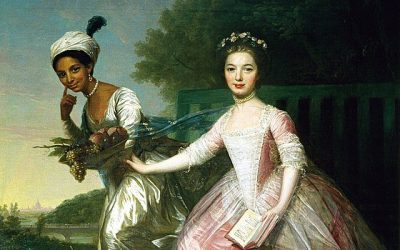Dido Elizabeth Belle was a unique figure in 18th-century England, a time entrenched in the transatlantic slave trade. Born in 1761 to an enslaved woman named Maria Belle and a British naval officer, Sir John Lindsay, her story tells of her rise from a difficult start to becoming an influential figure in her own right.
The life of Dido Elizabeth Belle began in the Caribbean, with her mother being enslaved by Sir John Lindsay. After recognising Dido as his daughter, Lindsay brought her to England, where she was raised alongside her cousin Lady Elizabeth, under the care of their great-uncle William Murray, the First Earl of Mansfield and Lord Chief Justice of England.
Raised primarily at Kenwood House in Hampstead, Dido’s unique position as the mixed-race daughter of a nobleman granted her an elevated status she could have hardly imagined.
Dido’s upbringing was unusual for someone of mixed-race heritage during this time. While she was not officially recognised as an equal member of the aristocratic family, she occupied a distinct position within its ranks. Due to conventions regarding class and protocol within elite society, there were specific roles and responsibilities that Dido could not execute, but overall she was well-treated and well-educated. It is said that Dido acted as Lord Mansfield’s assistant, helping him with correspondence and organising his papers.
Her life was also deeply connected to several landmark cases that Lord Mansfield presided over concerning the rights and treatment of enslaved individuals within Britain. The infamous Somersett’s case (1772) decision declared that chattel slavery was unsupported by English law, which significantly contributed to changing attitudes towards slavery within Britain. While it is unclear if Dido influenced Lord Mansfield’s decisions directly, her unmistakable presence may have played a role in shaping his perspective on these matters.
Dido’s life took another interesting turn when, in 1784, a devastating fire destroyed her uncle, Lord Mansfield’s house. This event led to a will being changed in Dido’s favour, granting her financial independence and the freedom to decide her life path.
Dido later married a Frenchman named John Davinière and settled in London, where they had three children. Their marriage placed Dido firmly in the emerging middle class of London society, straddling both worlds – neither fully embraced by the aristocracy nor subject to the oppression many mixed-race individuals faced in Britain at that time.
Dido Elizabeth Belle’s story is a captivating and largely untold tale of triumph over adversity. Her life went beyond the limits of societal boundaries, and her story is a testament to the extraordinary resilience and fortitude of the human spirit.






Leave a Reply